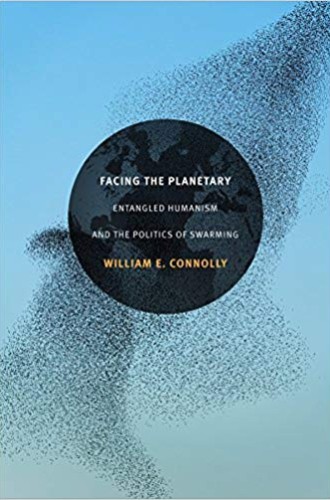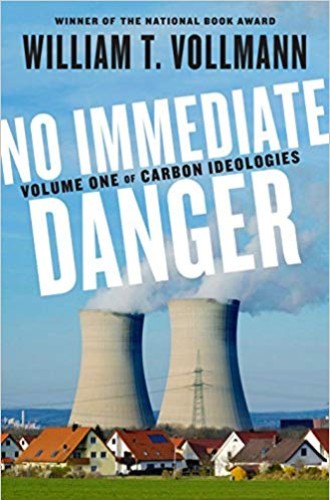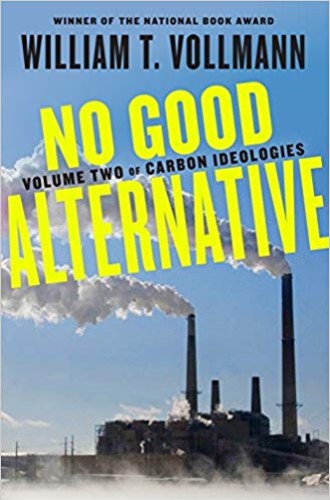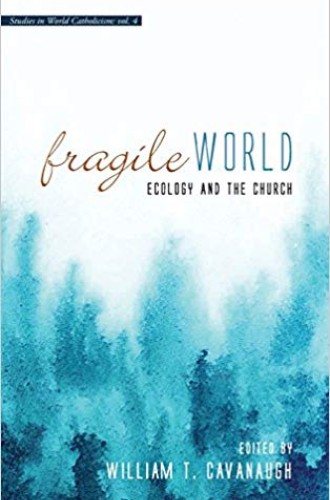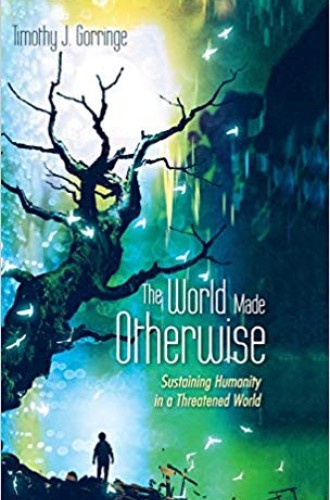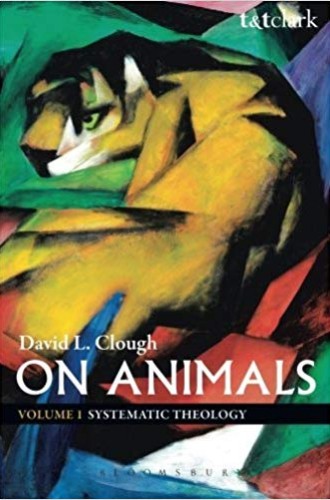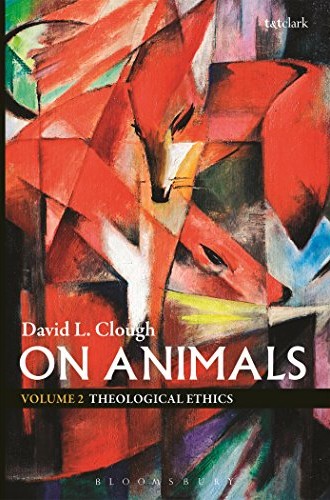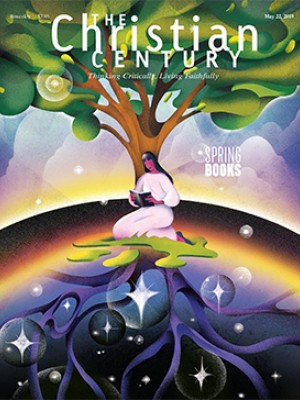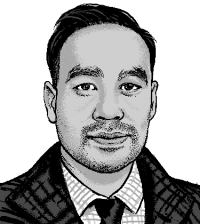There is no more pressing ethical issue in the world today than our treatment of the environment. Concerns about the environment intersect with every other ethical concern, from injustice and inequality of every kind to the politics of war and the politics that lead to war. And no other set of issues so clearly displays sin’s inner workings, outer consequences, and utter unsustainability.
In Facing the Planetary: Entangled Humanism and the Politics of Swarming (Duke University Press), political theorist William E. Connolly diagnoses the problem.
A tiger has us by the tail; we are swinging around without really coming to terms with the character of the Anthropocene, . . . the two hundred to four hundred years during which extractive capitalism has significantly modified atmospheric CO2 levels. . . . There is no guarantee that we will succeed in our actions if and when we finally face up to it.
Read our latest issue or browse back issues.
Christians are among those most to blame for this regrettable state of affairs: “First-stage denial is the insistence by many evangelicals and neoliberals that the issue is not nearly as severe as climate scientists and the recent flood of climate marchers in many cities around the world contend,” Connolly explains. “The second stage of denial is admitting the issue but continuing to study and act within old sociocentric categories.” By sociocentric, Connolly means a pattern of thought that radically distinguishes humans from nature and assumes that only the former has agency and intelligence. This has the ruinous effect of subordinating all living things to human interests, the nonhuman world rendered so much movable scenery on the human show.
According to Connolly, sociocentrism blinds us from seeing how the world is possessed of myriad forms of intelligence and agency. Those forms of life intermingle with all else. Tending to creation’s naturally occurring intelligence and agency has the potential of unleashing built-in possibilities for mutually assured survival. Increasingly, scientific discoveries—from complexity theory to sociobiology to epigenetics—are demonstrating just this, but the second-stage deniers are blocking those discoveries. The question for Connolly is whether we humans will change our ways and join the rest of the planet in taking care of itself or keep to our self-serving patterns and destroy all else along the way.
It is this destructive pattern of existence that leads William T. Vollmann in his two-volume Carbon Ideologies series (Penguin Random House), No Immediate Danger and No Good Alternative, to conclude that the best that we can now hope for is to document for subsequent generations why we left them with a planet so clouded in nuclear winter that humans need to subsist off roaches. The acclaimed writer starts off by informing us that Carbon Ideologies will not offer any solutions because there are no solutions. He recounts how he spent years traveling the world, looking at the causes and consequences of climate change and the remedies we’ve come up with to save ourselves. What Vollmann found is strikingly similar to Connolly’s conclusions: we humans think only in terms of ourselves and we raise our children to do the same. Each new generation learns not only toxic habits but also toxic justifications, in turn multiplying a billionfold the calamitous effects of human self-interest.
Vollmann believes that global warming is now so far past the point of no return that every remedy deployed will eventually prove futile. There is an ethical wake-up call here for those with ears to hear it. Where is God in all of this? Assuming God hasn’t abandoned us to our devastations, how now do we talk about God as creator, sustainer, and redeemer of our fragile world? And how do we do so with the hope and courage that would enable us to live into God’s inexhaustible goodness and beauty?
Fragile World: Ecology and the Church (Cascade) brings together Catholic scholars from the Global South (where people tend to be the most environmentally vulnerable) and the Global North (where people tend to be the most environmentally culpable) around a global problem. The volume’s editor, William T. Cavanaugh, writes:
ecology is not just one more issue for theology to take notice of and comment upon. The ecological crisis is at its root a theological crisis. . . . The modern neglect of creation comes from our neglect of God and God’s Word, but it is also the case that our neglect of God comes from the ways that our interaction with the physical environment teaches us to relate to everything that is Other than ourselves.
Cavanaugh notes that Pope Francis repeatedly uses the phrase “integral ecology” in his encyclical Laudato si’. This term draws attention to “the ways in which not only the physical environment but also human society, culture, theology, and economics are all densely interconnected.” Pursuing God requires that no stone go unturned.
The essays in Fragile World are fresh, invigorating, and properly hopeful. In her essay on environmental disasters, for example, Filipina theologian Agnes M. Brazal speaks of a natural reciprocity between creatures and creation. She links this reciprocity to “how Sallie McFague redefines sin in an ecological perspective, that is as ‘refusal to accept our place’ in the scheme of creation, where humans live together with other creatures and are the most dependent on the rest of creation for survival.” Brazal shows what it looks like to talk about God as if everything were integrally related. Her hopefulness points toward non-Christian (and even nonhuman) signs that the world is, and will remain, God’s.
Timothy Gorringe has written in the past about a variety of topics, including Karl Barth, economics, politics, political theory, and consumerism. In The World Made Otherwise: Sustaining Humanity in a Threatened World (Cascade), Gorringe offers a theological equivalent to Connolly’s nontheological Facing the Planetary. Gorringe’s analysis comes with a sense of urgency rooted in careful review of scientific conclusions regarding humanity’s effects on the earth.
Like Connolly, Gorringe cautiously seeks out reasons for hope. “Forming communities that can carry people through really dark times cannot be accomplished by optimism, but only by a disciplined collective effort centered on a sober but hopeful spirituality, or as Christians would say, on a spirituality of cross and resurrection.” He locates this collective effort in political movements that the Christian church can partner with, learn from, and contribute to. This kind of collaboration, he argues, creates a global network that might better care for our common home.
The World Made Otherwise offers a uniquely political account of spirituality, a view of religious experience as always already bound up with others. Gorringe tells us, “Spiritually will be at the heart of it because humans do not live by bread alone but by every word that proceeds from the mouth of God, which is to say by an openness to the mystery of all reality, by practices of gratitude such as praise.”
There is no more important treatment of ethical questions than David Clough’s two-volume work On Animals (Bloomsbury), which he completed last year. The first volume, Systematic Theology, offers a clear-minded theological account of the interconnectedness of all things. The second, Theological Ethics, presents a series of proposals on what those interconnections require of us. Clough seems to have thought through every possible question from every possible angle, and he arrives at a painfully straightforward conclusion:
The lives and deaths we inflict on other animals very clearly fail to regard them as fellow creatures who glorify God in their flourishing, who are reconciled with all things in heaven and earth in the work of Jesus Christ, and who are heirs with us to the new creation where there will be peace between all creatures.
Put more simply, the way we treat animals is not Christian—and we should repent. Clough doesn’t want “the perfect to be the enemy of the good,” so he suggests that our repentance may come gradually (as genuine repentance usually does).
On Animals takes a topic that is often riddled with abstractions—the environment—and humanizes it. The effect is often too close for comfort. Practical proposals are much harder to swallow than abstractions. What Clough tells us, for example, about the companion animals in our homes will be devastating for most readers.
But Clough doesn’t want to devastate us, even though the planetary devastation we have wrought warrants some devastating. He wants to change us, and he believes he still can. If we are going to change, if we still can, On Animals—with its theological attention to the cats we keep and the dogs we breed and the spiders we smash and the deer we hunt and the pigs we slaughter—may be the best place to start.
Read Jason Micheli's Take & Read: New books in theology and Amy Erickson's Take & Read: New books in Old Testament.


